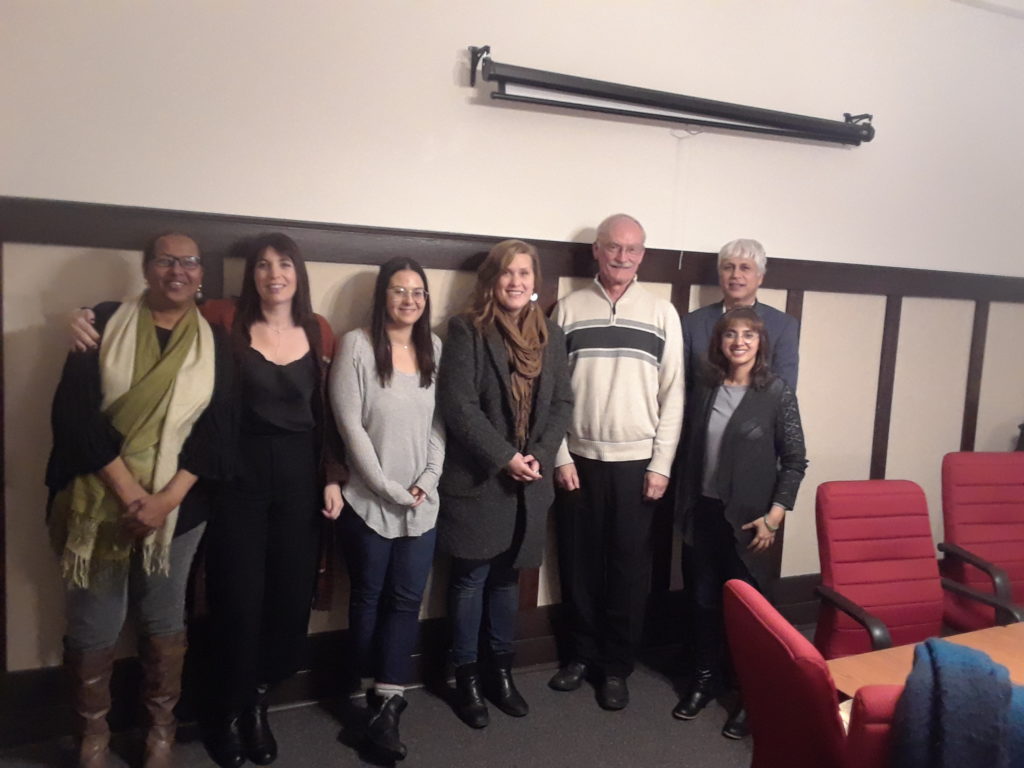David Ridley, Executive Director of Edmonton Heritage Council, has offered some comments on the ongoing evolution of EHC’s HCIP grants.
Please note, March 6 is the deadline for the current intake of the Project Accelerator and Travel grant streams. Those who have engaged or considered engaging with HCIP are encouraged to submit feedback via this survey by no later than March 13.
Over the past seven years, the Heritage Community Investment Program (HCIP) has been built upon the premise that Edmonton’s heritage is everywhere and for everyone. We like to think that this investment is an ongoing, broad invitation to the community. Every person in Edmonton has a story and we want to help share them all.
Through Operational grant funding, we provide stability to Edmonton’s heritage organizations, and support professional heritage practice. We encourage community organizations of all kinds to explore their relationship to heritage through Project grants. We have advanced innovative work and provided start-up funding through Project Accelerator and the previous Seed grants. We support heritage practitioners in making connections and expanding their knowledge through Travel grants. In partnership with the Edmonton Arts Council, Living Local saw artists and heritage practitioners collaborate to showcase Edmonton’s communities.
We are in the second year of Connections & Exchanges: A 10-Year Plan to Transform Arts and Heritage in Edmonton. In our first year, we piloted several new programs that brought us closer to our aims and ambitions, including a mentorship program, organizational capacity-building workshops, and the re-launch of the Edmonton City as Museum Project (ECAMP). Connections & Exchanges also makes evident the limits and gaps in HCIP. 2020 will be a year of re-evaluation for HCIP, as we refocus investment on heritage organizations and practitioners towards realizing the following ambitions of the new plan:
Alive with Arts and Heritage. Reducing barriers to accessing HCIP is our main priority. We want to hear from people who are doing exciting and innovative heritage work all across the city. We will be actively seeking out projects that involve neighbourhoods and communities often left out of heritage work. We will continue support work that engages new communities in heritage and tells stories from voices less heard.
A Hub for Extraordinary Reputation and Creation. We will create more opportunities for heritage professionals to learn, explore, and share their work in Edmonton and worldwide. We will focus our support on individuals and organizations who make continuing commitments and tangible contributions to heritage work in our city.
A Thriving and Well-Funded Arts and Heritage Ecosystem. We will explore new ways to support ongoing heritage programs and multi-year projects. We will work to support projects that include mentorship and professional development and encourage organizational capacity-building within the heritage sector.
Our granting practises will adapt to meet these changing needs of our heritage community, but the primary goal of HCIP – to share and connect people through Edmonton stories – remains unchanged. We will have more to share about the specific impact of these developments throughout the year, but, in the meantime, if you have any questions, please reach out to EHC’s Grants Coordinator, Julia Darby, at grants@edmontonheritage.ca.
Sincerely,
David Ridley

At a Fall 2019 gathering of HCIP grant recipients (l-r): Naima Haile, Rayanne Haines, Jean Middleton, Marina Hulzenga, E. Neil Taylor, Shreela Chakrabartty (director of recipient Robin Yusaf’s new film) and Kash Gauni (Chakrabartty’s frequent collaborator)